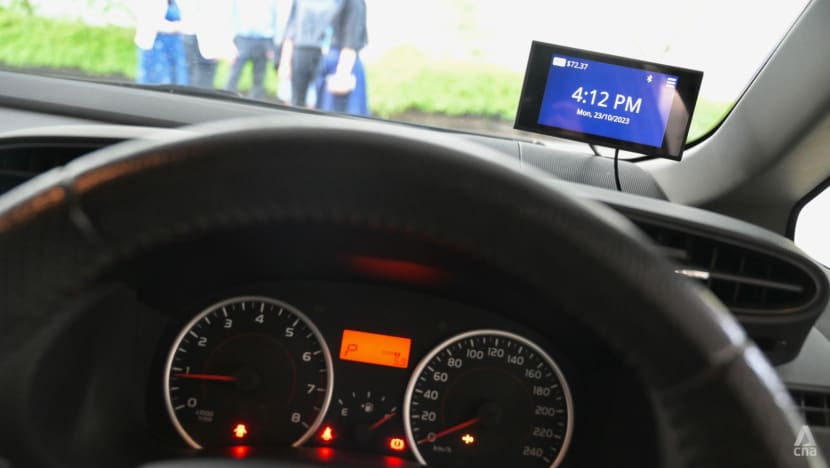LTA refutes online claims of ERP 2.0 on-board unit not complying with international standards
The new ERP 2.0 on-board units - which have received criticism from motorists - meet the relevant global benchmarks, said the Land Transport Authority.


This audio is generated by an AI tool.
SINGAPORE: Online claims that the ERP 2.0 on-board units (OBU) have failed to comply with international standards are false, the Land Transport Authority (LTA) said on Tuesday (May 14).
The OBU "meets the relevant global benchmarks for electronic devices", LTA said in response to media queries.
LTA pointed to Minister for Transport Chee Hong Tat's parliamentary reply to Louis Chua's supplementary question on May 8. Mr Chua had asked if the new OBU meets the Automotive Electronics Council Q100 (AEC-Q100) requirements for reliable operations in Singapore's climate.
Mr Chee answered that the LTA had conducted "quite a comprehensive set of tests", including climate and crash tests.
The LTA pointed out on Tuesday that Mr Chua had used the incorrect electronic devices standard in his question.
"The AEC-Q100 standard is used to measure packaged integrated circuits used in vehicles, such as the chips used in the in-car entertainment system.
"AEC-Q100 focuses on the quality of individual components and is not meant for devices that comprise many components that are put together."
The relevant standards that the OBU was tested against were the International Electrotechnical Commission’s IEC-60068 and IEC-60529 - two standards widely used to test the operational reliability of electronic or electrical devices, said LTA.
To achieve qualification against these standards, the OBU passed a wide range of tests including temperature and humidity.
"When properly installed, it is safe and reliable to use in our operating environment," said LTA.
Installations of the new OBU started in November 2023, with about 13,000 vehicles fitted with the units as of April 2024.
Early users had complaints about the card reader placement and the touchscreen display's size. LTA later made improvements to the experience, including allowing drivers the choice of installing the processing unit on either the driver's or passenger's side.
HEAT
The processing unit of the new OBUs, also called the card reader, functions "like a mini-computer" and generates heat when it operates, said LTA.
"It is different from devices like the existing IU and vehicle dashcam, or other components of the OBU like the antenna and touchscreen display," it said.
"These are either passive devices or do not have the same computing functions as the processing unit. A more relevant comparison to the processing unit is the smartphone, which is also a mini-computer."
LTA added: "If you leave your smartphone in a holder near the dashboard for a few hours under the hot sun, it could overheat and stop working temporarily. The phone will display an error message stating that it can only be used after the device has cooled down."
It pointed to a technical advisory issued by Apple on May 3, which advised users that their devices should be stored between -20 to 45 degrees Celsius, and that devices should not be left in cars because temperatures can exceed this range.
"It is the same reason why LTA does not recommend placing the processing unit on the dashboard, as the temperature at this location could reach 50-52 degrees Celsius on a hot day, compared to 38-39 degrees Celsius at the footwell," said LTA.
















